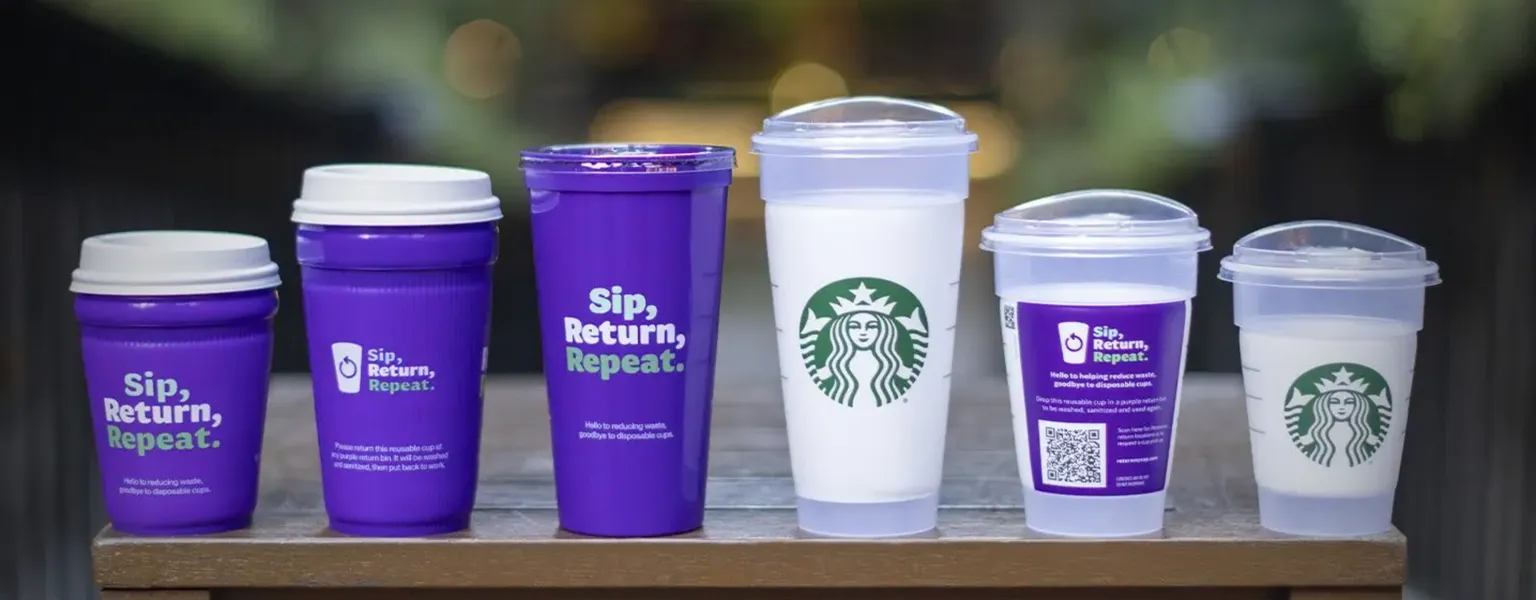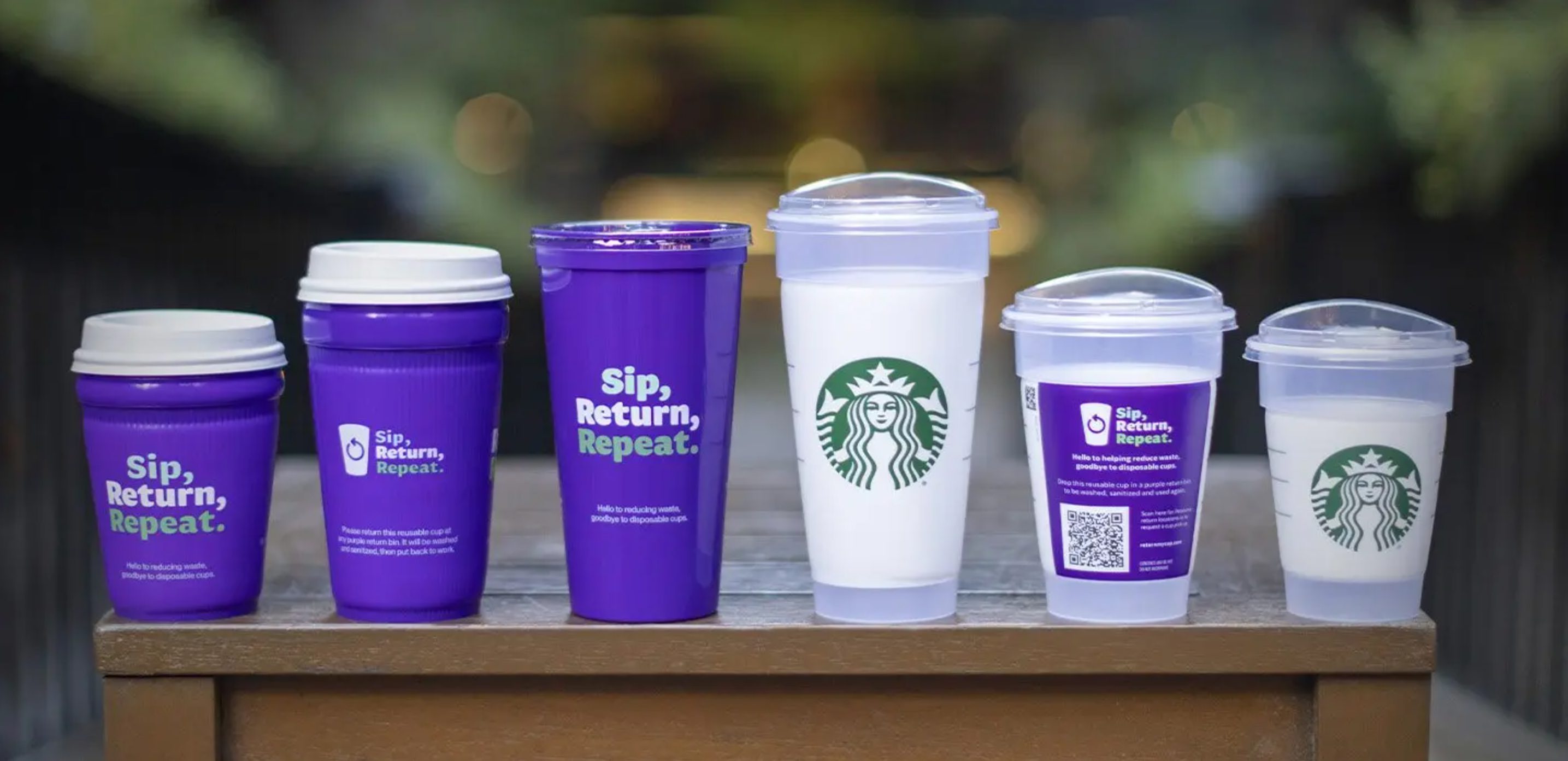California’s Petaluma launches reusable cup initiative with major brands

Sustainability
Starbucks, Coca-Cola, PepsiCo, Peet’s Coffee, Yum! Brands, and other global and local brands are participating in The Petaluma Reusable Cup Project, organised by the NextGen Consortium and led by the Center for the Circular Economy at Closed Loop Partners. Starting August 5, over 30 restaurants in Petaluma, CA, will replace single-use cups with reusable to-go cups at no cost to customers, with multiple return points available throughout the city.
This initiative is the first in the U.S. to make reusable to-go cups the default at multiple restaurants, aiming to reduce the use of single-use cups significantly. The project emphasises creating return habits among customers, which is crucial for the success of reuse systems. It represents a significant step forward in promoting and scaling reusable systems, building on five years of work by the NextGen Consortium in partnership with global foodservice brands.
The diverse mix of national chains, local restaurants, convenience stores, and community hubs makes this initiative powerful in shaping consumer habits and cultural norms. Participating establishments include Starbucks (and licensed Starbucks cafés in Target and Safeway), Peet’s Coffee, KFC, The Habit Burger Grill, Dunkin’, and various local cafés and restaurants. The project is supported by extensive public-private collaboration, including the City of Petaluma, Zero Waste Sonoma, Recology, community groups, and local businesses.

More than 60 cup return bins will be installed across Petaluma. After use, the reusable cups will be collected, washed, and reused by participating businesses. Muuse, a winner of the 2018 NextGen Cup innovation challenge, will manage the servicing and reverse logistics for the initiative.
Kate Daly, Managing Director and Head of the Center for the Circular Economy at Closed Loop Partners, said: To create a world without packaging waste, we need to ensure that food packaging reuse systems are scaled in a way that creates a positive environmental impact––meeting the current needs of people while driving a cultural shift toward reuse. By testing reuse across an entire city in partnership with key stakeholders from the community and industry, we can scale reuse collaboratively through thoughtful experimentation, building a future where reuse is the norm.
Running until November, the project will collect data on customer participation and the environmental impact of reusables, testing the model's operational viability for larger scale implementation. This data will help businesses and regulators design new reuse systems and develop informed packaging regulations.
Related News
-
Sustainability
Starbucks joins forces with Podback for coffee pod recycling
-
Sustainability
Starbucks revamps packaging for Colombia Nariño coffee
-
Sustainability
Vancouver: successful 'Return-It to Reuse-It' and 'Recycle-It' programme expands
-
Sustainability
Starbucks welcomes reusable cups for drive-thru and mobile orders in U.S. and Canada
-
Sustainability
PepsiCo to use more reusable packaging for beverages




